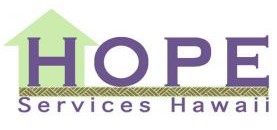East Hawai’i ‘Ulu Planting and Intercultural Sharing Program
UPDATE: Miki and the Hilo Chuukese Community’s story was featured globally, reaching nearly one million people, via Catholic Relief Services’ 2017 CRS Rice Bowl Campaign. Click here to read more!
In late 2014, HACBED and Sacred Heart Catholic Church in Pāhoa conducted community asset mapping exercises for the Pāhoa area. Widespread limitations in transportation and access to land quickly became apparent. These problems have made the preservation of ancestral practices difficult, both among migrant and native populations. Most starkly affected are these groups’ traditional food production techniques. Thus, with the help of many collaborators and support from the Laura Jane Musser Fund, HACBED created the East Hawaiʻi ʻUlu Planting and Intercultural Sharing Program. Intended to increase both transportation and common access to community and Parish land, the project is provided open, inclusive, and culturally-grounded gatherings and shared areas for the expression of cultural knowledge.
East Hawaiʻi’s varied cultural traditions are largely land-based: a point of unity for this diverse region, and an opportunity for process-forming and deliberate collaboration. By encouraging distribution, planting, cultivation, and sharing of ʻulu or mai (breadfruit), a traditional Pacific Island staple, cultural exchange will occur. Community gatherings will cultivate relationships and understanding as families address hunger and food insecurity together, simultaneously raising funds for a van for the Pāhoa migrant Micronesian population. Learning activities featured a wide array of native food and agricultural practices, including Native Hawaiian, Micronesian, Asian, other Pacific Islander, and others.
Activities associated with this project aimed to create a deliberate, culturally-mindful process of exchange. Grounded in HACBED’s expertise in facilitation and community organization, the project uses ʻulu as an entry point to further dialogue that strengthens bonds across cultures and deepens the Pāhoa community’s resilience. Widespread community participation in this process has engendered cooperation and pride in grassroots efforts tied to ʻulu and traditional methods of food production.
Project Activities:
- Food Production and ʻUlu Planting – in late 2015 and early 2016, approximately 15 ʻulu trees were planted in the Pāhoa area. The local Micronesian population has committed to ongoing maintenance of the trees.
- Islander Festivals – with the first in a series of Islander Festivals held on April 9, 2016, these events are celebrations of island cultures and opportunities for intercultural exchange around music, dance, and food.
- Community Mapping and Disaster Preparedness Meetings – mapping events to update existing community maps, identify community resources, and address the needs of the most vulnerable individuals and families in the area.
Our Partners
Hilo Chuukese Community Association (HCCA)
Legion of Mary
Sacred Heart Catholic Church, Pāhoa



